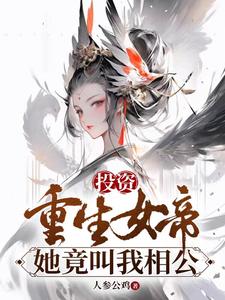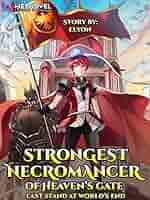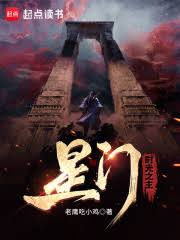The Story in 3 Sentences
Li Mo transmigrates into a martial world with a mysterious Investment System that reveals the destiny and potential of those he chooses to back, turning personal relationships into pathways of power.
His childhood sweetheart Ying Bing, cold and sealed in her meridians, carries the highest red destiny—foretold to rise as the Phoenix Heavenly Empress who will command the Nine Heavens and Ten Earths.
As Li Mo invests in her ascension through trials of politics, celestial opposition, and emotional distance, she begins calling him “husband,” binding their fates in a romance built on foresight, sacrifice, and the quiet weight of a future earned.
Why It Stands Out
1. The Stock Market of Souls
The Investment System isn’t just a gimmick—it’s a full philosophy of cultivation reimagined as venture capital for destiny. Every character Li Mo backs becomes a living asset, their growth yielding tangible rewards, but also emotional stakes. This reframing of spiritual progress as strategic foresight turns readers into silent investors, calculating risk and return with every arc. It’s xianxia meets Wall Street, where the most profitable move isn’t always the strongest punch, but the right belief in someone before the world sees it.
2. Love as a Long-Term Portfolio
The romance between Li Mo and Ying Bing doesn’t ignite—it compounds. Their bond isn’t forged in sudden declarations but in quiet moments where a glance, a withheld title, or a delayed “husband” carries years of emotional interest. She resists affection not out of disinterest, but because her role demands emotional detachment. He supports her not with grand gestures, but consistent investment—financial, spiritual, and emotional. This slow-burn dynamic feels less like a trope and more like a realistic portrayal of love under pressure, where power and intimacy grow in tandem, not in spite of each other.
3. A World That Tracks Your Potential
From ranking destinies with colored auras to penalizing failed investments with spiritual backlash, the world operates on a logic that’s both fantastical and eerily modern. It mirrors real-world systems of credit, reputation, and social capital, making the absurd feel grounded. Characters aren’t just powerful—they’re rated. This meta-layer adds depth beyond typical cultivation hierarchies, where your value isn’t just in your current strength, but in your projected future. The result is a narrative that feels like a simulation of fate itself, where every decision ripples across timelines.
Characters That Leave a Mark
There’s Ying Bing – the Phoenix Heavenly Empress whose icy exterior masks a soul burdened by prophecy, struggling to awaken her sealed meridians while carrying the weight of a universe’s expectation on her shoulders.
You’ll meet Elder Huo, the disgraced flame master who once ruled the Southern Skies but now wanders as a beggar, only to be reborn through Li Mo’s risky investment, repaying loyalty with fire that burns through celestial edicts.
Then there’s Mei Ling, not just a jealous rival, but a prodigy trapped in the shadow of Ying Bing’s red destiny, whose resentment fuels her own ruthless climb, forcing readers to question whether fate favors the worthy or simply the foreseen.
And Lord Xuan? They’re the one who enforces the Heavens’ will with cold precision, a celestial auditor who views Li Mo’s system as a corruption of natural order, embodying the conflict between divine mandate and human agency.
The Flaws Fans Debate
Some readers feel the early chapters drag under repetitive system explanations, where investment mechanics are rehashed more than explored, slowing momentum when emotional stakes are still building.
A portion of the fanbase argues that the romantic progression, while intentional in its slowness, borders on frustrating, with key emotional breakthroughs delayed beyond narrative payoff, leaving some craving more intimacy amid the strategy.
Others point out that action sequences, while present, are often overshadowed by dialogue and system calculations, making the novel feel more like a cultivation drama than a martial epic, which may disappoint readers seeking constant battles.
There’s also debate over whether the Investment System, for all its brilliance, sometimes reduces characters to metrics, risking emotional detachment when their value is quantified in aura levels and return rates.
Must-Experience Arcs
Ch. 1–100: Awakening and Investment Start – Li Mo arrives in the martial world, discovers his system, and makes his first critical investment in Ying Bing, setting the foundation for all future power gains and emotional tension.
Ch. 200–400: Ascension of the Empress – Ying Bing begins breaking her meridian seals amid political sabotage from rival sects, culminating in her public declaration as the Phoenix Heavenly Empress, a moment that shifts the balance of celestial power.
Vol. 3–4: Heavenly Competition and Penalty Mechanic – The system’s dark side emerges as failed investments trigger spiritual penalties, forcing Li Mo to confront the cost of manipulation and risk, raising the stakes beyond mere profit.
Killer Quotes
“Can’t you let me win just once?”
“Call me husband first. I didn’t quite catch it last time.”
“The higher the fate, the richer the reward.”
“In a world of cultivation, even destiny can be invested in.”
“Even the heavens don’t know what I’ve bet on you.”
Cultural Impact
The phrase “call me husband” has become a meme in xianxia circles, used humorously in fan art and commentary to represent slow-burn romances where affection is doled out like rare elixirs.
International readers have dubbed the system “Fate Futures,” comparing Li Mo’s choices to stock trading, with fan-made charts tracking character potential like market trends.
The novel has inspired a wave of “system x romance” webnovels, where cultivation mechanics are tied to emotional bonds, proving that love can be both a strategy and a reward.
On Chinese forums, debates rage over whether Ying Bing truly loves Li Mo or sees him as a necessary component of her destiny, reflecting deeper cultural conversations about agency in arranged ascensions.
Final Verdict
Start Here If You Want:
A fresh twist on xianxia where love and investment are two sides of the same coin, blending emotional depth with strategic cultivation.
A protagonist who doesn’t fight his way to the top but sees further, invests wisely, and changes fate from behind the scenes.
A world where destiny isn’t fixed but fungible, and every character’s rise feels earned through both struggle and belief.
Study If You Love:
Narratives that merge economic logic with fantasy progression, offering a cerebral take on power growth.
Romances that develop like compound interest—slow, quiet, but impossible to ignore over time.
Stories that challenge the idea of predestination by letting characters bet on each other against the odds.
Avoid If You Prefer:
Fast-paced action with immediate payoff, as this novel thrives on delayed gratification and long-term arcs.
Pure martial dominance without emotional or systemic complexity, since power here is relational, not just combative.
Simplified worldbuilding where cultivation is straightforward—this story layers mechanics, politics, and metaphysics into every decision.





